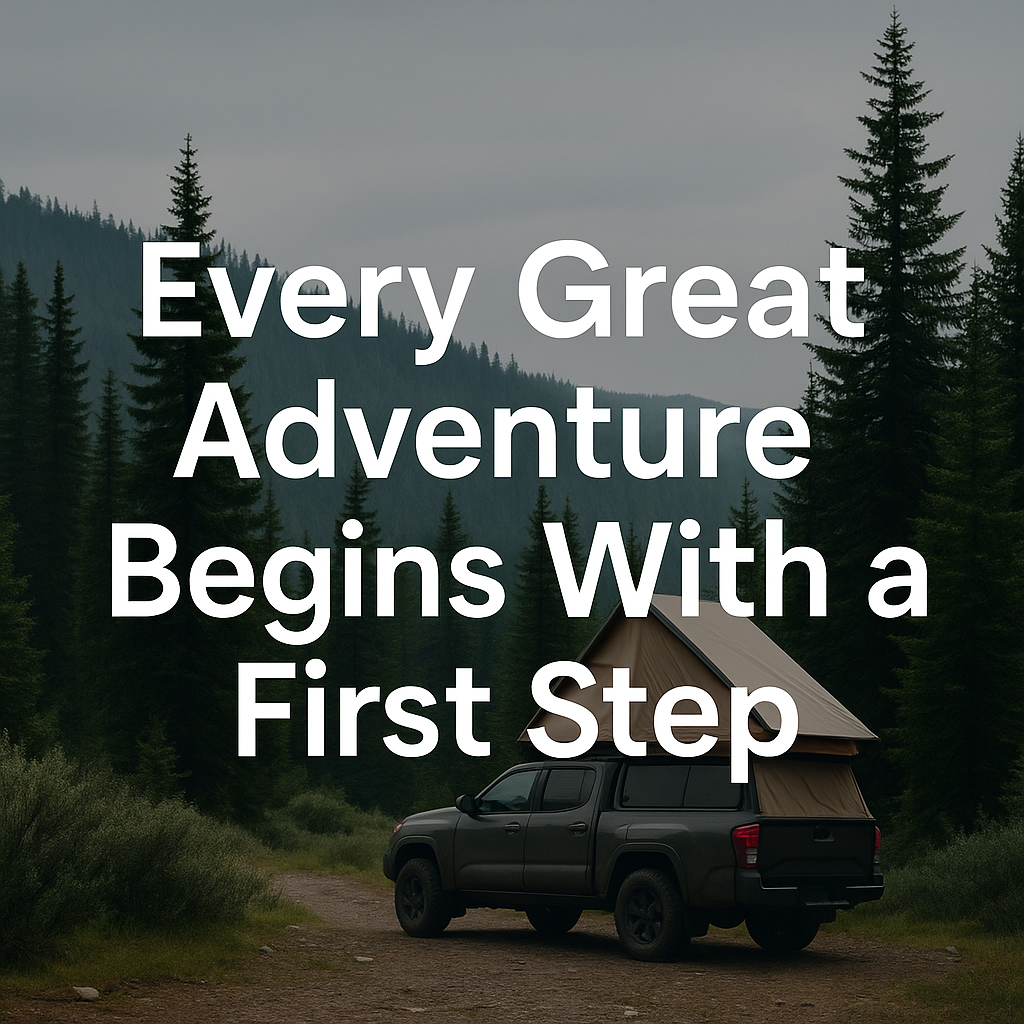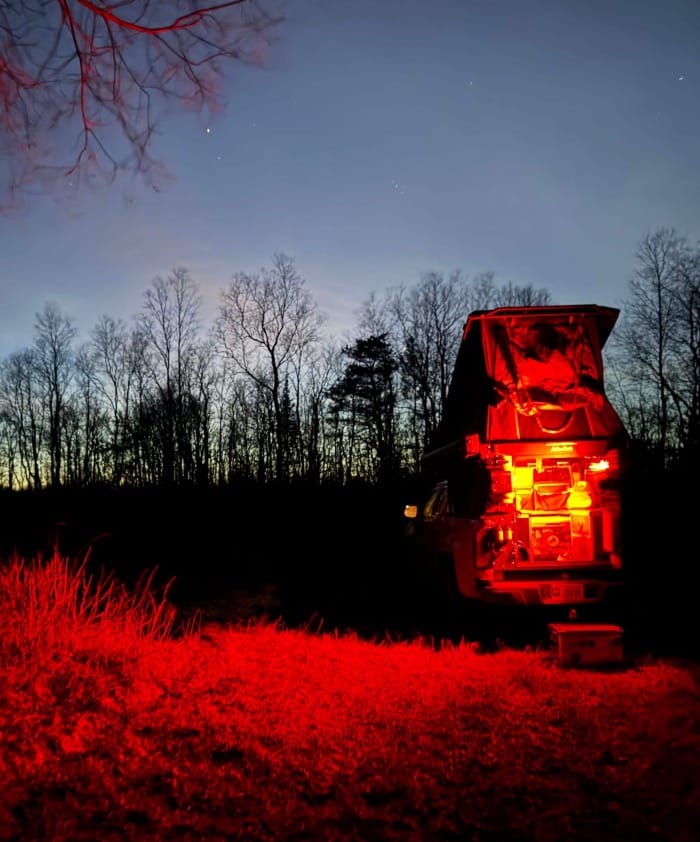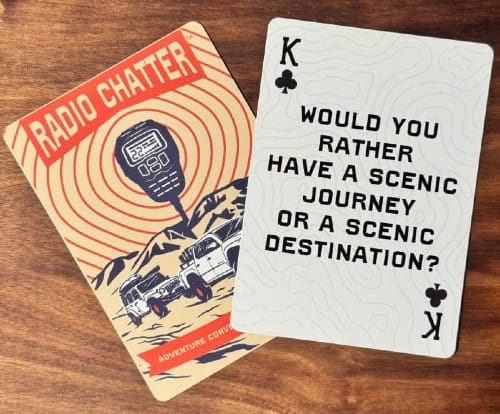Every Great Adventure Begins With a First Step

"Your career next steps sound a lot like that overlanding thing you do." That was the reaction from more than one person when they found out I was leaving my full-time engineering leadership job. The first time I heard it, I had to dig in because it wasn’t obvious to me at first. None of the people who made this comparison had ever been overlanding themselves, but once they explained it, I couldn’t stop thinking about it. They were onto something.
For those unfamiliar, overlanding is often described as "self-sufficient vehicle travel where the adventure itself is the destination. [Source]" It’s not just off-roading or camping—though those can be part of it. At its core, overlanding is about exploration, autonomy, and resilience. It’s about choosing the path less mapped, knowing you have what it takes to handle whatever comes.

Let’s break that definition of overlanding down:
- Self-sufficient: In our setup, we’ve got a camper, fridge, solar-powered electricity, food, water, and the gear to survive and thrive. We’re not dependent on anyone else to keep us going. This is where you need to understand risks and have mitigations ready for them.
- Adventure: It’s not always rock crawling or remote trails. Our 17-day road trip out west wasn’t technical, but it was an adventure—especially in a mid-size truck camper with a spouse and a five-year-old. Based on the adventure at hand, you need to update what you need to be self-sufficient.
Sometimes we have a plan. Other times we just have a general direction. But we always have maps, digital in our case, and recovery tools. We plan for the worst (winches, spare parts, satellite comms), even while we hope for the best.
This mindset of self-reliance, preparedness, and being open to the unknown mirrors the approach I’m taking in this next phase of my career. From the outside, it might look like, and yes sometimes feels like, I quit “without a plan.” But like overlanding, it’s an intentional form of exploration.
For my career journey, my “map” is built on values and energy alignment. And like any over-prepared overlander, I’ve got risk mitigations in place:
- Risk: Alone without guidance.
Mitigation: Hired a career coach for outside perspective. - Risk: Long search for the right business.
Mitigation: Built a financial runway with monthly check-ins and a hard stop if we dip too deep. - Risk: Misalignment with entrepreneurship.
Mitigation: A return to a W2 role is always an option. - Risk: Limited network in small business circles.
Mitigation: Joined local chambers and started building new connections. - Risk: Opportunity cost of lost income.
Mitigation: Doing this now, with time before my son hits college and room to course correct.
Like overlanding though, you can't prepare for everything. One of the other Risks and Mitigations I had thought through originally was:
- Risk: Require money for a business loan downpayment that I no longer have because I spent it trying to find a business or I don't have enough for the downpayment of my desired business.
Mitigation: Leverage seller financing as part of my downpayment for a small business loan.
If you are not familiar with seller financing, it is just a sellers note - a loan to you, from the seller, to use as part of financing the acquisition of the business. This has been made really popular lately by the acquisition entrepreneur influencer Codie Sanchez lately. On paper it sounds great. I don't have to use all my money and I keep some 'skin in the game' from the seller to ensure what I purchase is a business that the seller still believes will stand the test of time.
But sometimes, not matter how much you prepare, there are outside forces at play that you cannot control (like Mother Nature in overlanding). For example, the small business administration just recently changed the rules for how downpayment on loans can be financed. The biggest impact: seller notes (seller financing) can no longer be used for the full downpayment of a small business loan. If some seller financing is used for the downpayment, it is on standby for the entirety of the loan, which is typically 10 years. This means the seller would still get their upfront payment from the small business loan, but for the part they put down as part of your downpayment - they won't see that for 1o years (assuming you don't pay off your loan early). Ugh.
Or what about tariffs...didn't account for that!
Or how about proposed legislation in the State of Michigan that could make being an independent contractor more difficult? That could affect the whole consulting part of my journey. Ohh well..
What all of this reflects is a fundamental truth: I am driven by exploration, even when you run into obstacles you were not planning for. That’s why “Exploration & Experimentation" is in my personal values. It’s why I launched Radio Chatter with my wife. And it’s why I co-founded a business acquisition group with two partners. I love to explore new terrains but I also love to explore new potential.
Overlanding taught me that the journey is the destination. So is this new chapter and like any great expedition, it starts with one step, driven by curiosity, guided by values, and sustained by preparation.

Remember, overlanding is all about the journey itself—every great adventure begins with that first step. Source